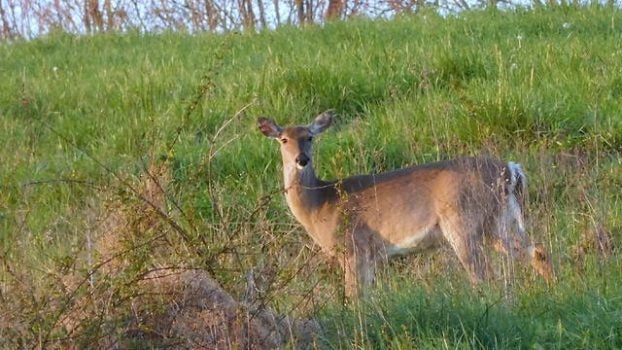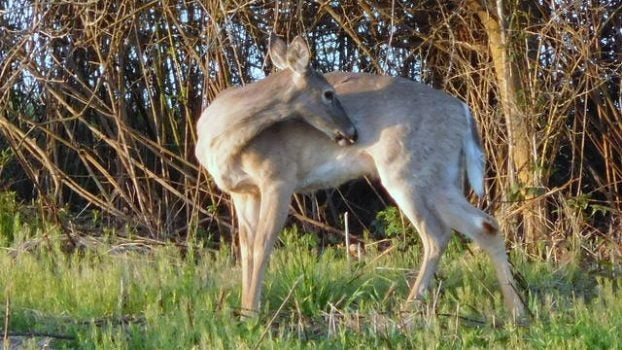Action taken at special called TWRA meeting
Published 7:02 pm Tuesday, January 8, 2019
|
Getting your Trinity Audio player ready...
|
The Tennessee Fish and Wildlife Commission (TFWC) has made regulatory changes in response to the confirmation of chronic wasting disease (CWD) in deer in Fayette and Hardeman counties. The changes came at a special called meeting of the TFWC on Dec. 20 at the Tennessee Wildlife Resources Agency headquarters.
The commission voted to establish a CWD management zone which currently includes Fayette, Hardeman, and McNairy counties. The commission took action to create deer carcass exportation restrictions and a restriction on feeding wildlife within the high risk area of the CWD management zone, exceptions apply. The high risk area of the CWD management zone includes counties within a 10-mile radius of the location of a confirmed CWD positive deer.
Another regulation change for the CWD management zone, is the creation of a new deer hunting season. An archery/muzzleloader/gun deer season was established there for Jan. 7-31, 2019. The bag limit for the season is one antlered deer and unlimited for antlerless deer. All wildlife management areas and other public land on which deer hunting activities are permitted within the three counties will be open during this newly-established season.
On or after Dec. 29 all hunters harvesting deer on weekends (Saturday-Sunday) are required to check the deer in at a physical check station. The TWRA will publish the locations of these stations on its website.
The TWRA is continuing its efforts of targeted sampling for CWD outside of the CWD management zone. Emphasis will be placed on those counties surrounding the CWD management zone.
With the positive confirmation, Tennessee became the 26th state to have documented CWD. There have also been three Canadian provinces to have CWD.
The TWRA enacted the CWD Response Plan last week following the preliminary positive detection. The response involves a coordinated effort between TWRA, Tennessee Department of Agriculture, and other partners.
Although CWD has no known risk to the health of humans or livestock, it is a contagious and deadly neurological disorder that affects members of the deer family. It is transmitted through animal-to-animal contact, animal contact with a contaminated environment, and with contaminated feed or water sources. It is the most significant threat to the deer population nationwide, as it is 100 percent fatal to deer and elk. Wildlife agencies across the country are working to inform the public about CWD, its deadly results and possible impacts to economies.
More information about CWD, including cervid import restrictions, and videos that explain how to properly dress an animal before transporting it, can be found on TWRA’s website at www.tnwildlife.org. (https://www.tn.gov/content/tn/twra/hunting/cwd.html/)
The Claiborne Progress did an informal poll on area hunters level of concern about CWD and 60-percent said they were extremely concerned and 40-percent were only slightly concerned. Hunters need to be prepared and on the look out for more information about this disease and the TWRA plan to control it.





